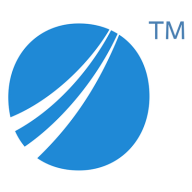

Pega Platform and TIBCO ActiveMatrix BPM compete in the Business Process Management (BPM) category. Pega Platform appears to have the upper hand due to its comprehensive features and enterprise recognition.
Features: Pega Platform is known for comprehensive case management, integration services, and a low-code environment that allows for fast prototyping and deployment. Its cloud services provide flexibility for various business needs. TIBCO ActiveMatrix BPM shines with its effective workflow definition, stable performance, and a low-code drag-and-drop interface that facilitates easy task management.
Room for Improvement: Pega users suggest enhancing user interface customization, integration capabilities, and reducing licensing costs. There are also calls for improved AI and decisioning capabilities. TIBCO users point to the need for simplified setup processes, better pricing structures, and expansive integration options.
Ease of Deployment and Customer Service: Pega Platform offers flexible deployment options for both on-premises and cloud setups, though its customer service garners mixed feedback regarding responsiveness and support quality. TIBCO ActiveMatrix BPM provides straightforward on-premises deployment and receives praise for stability, but there is a desire for more accessible support services for both platforms.
Pricing and ROI: Pega Platform's pricing is relatively high, creating barriers for small enterprises despite its potential for strong ROI. TIBCO ActiveMatrix BPM also targets larger enterprises with its pricing, emphasizing the need for refined pricing models that enhance accessibility. Both platforms are exploring pricing strategies to suit diverse business needs.
| Product | Market Share (%) |
|---|---|
| Pega Platform | 3.9% |
| TIBCO ActiveMatrix BPM | 0.9% |
| Other | 95.2% |


| Company Size | Count |
|---|---|
| Small Business | 9 |
| Midsize Enterprise | 15 |
| Large Enterprise | 69 |
| Company Size | Count |
|---|---|
| Small Business | 1 |
| Midsize Enterprise | 1 |
| Large Enterprise | 5 |
Pega Platform provides flexible business process management with a focus on rapid application development and automation through a low-code approach, enhancing efficiency across sectors.
Pega Platform is renowned for its ability to streamline operations with robust automation features, including robotic process automation and decision-making capabilities. Its intuitive interface and workflow management contribute to a reputation for enhancing business processes. Although users face challenges with integration limitations and high licensing costs, they benefit from rapid deployment and efficient process adaptations. The unified architecture reduces complexity, while case management and integration services support digital transformations in sectors such as banking, insurance, and healthcare.
What are the key features of Pega Platform?
What benefits and ROI should users expect?
In industries like insurance, banking, healthcare, and government, Pega Platform is implemented to automate diverse workflows, supporting initiatives from claims processing to customer onboarding. Enterprises use Pega for case management and digital transformations, valuing its out-of-the-box integrations and real-time reporting capabilities to boost operational automation and enhance customer experiences.
We monitor all Business Process Management (BPM) reviews to prevent fraudulent reviews and keep review quality high. We do not post reviews by company employees or direct competitors. We validate each review for authenticity via cross-reference with LinkedIn, and personal follow-up with the reviewer when necessary.